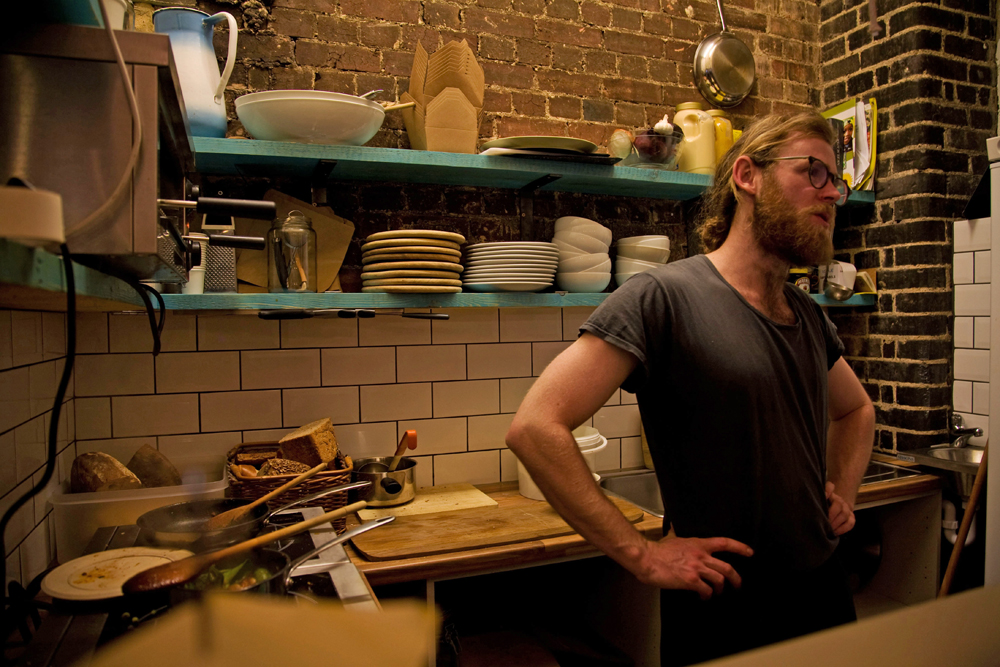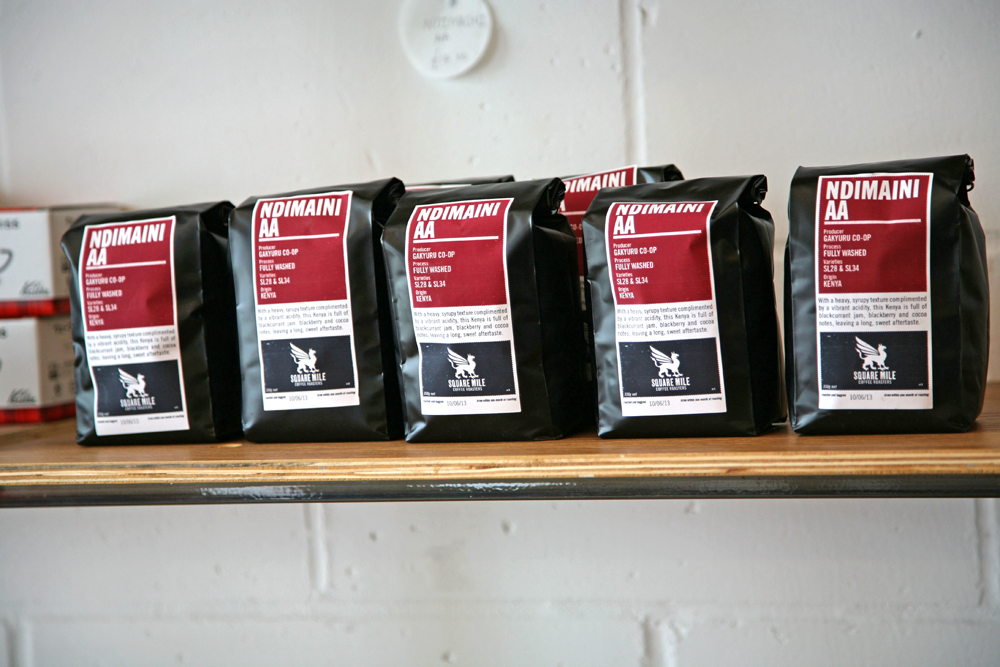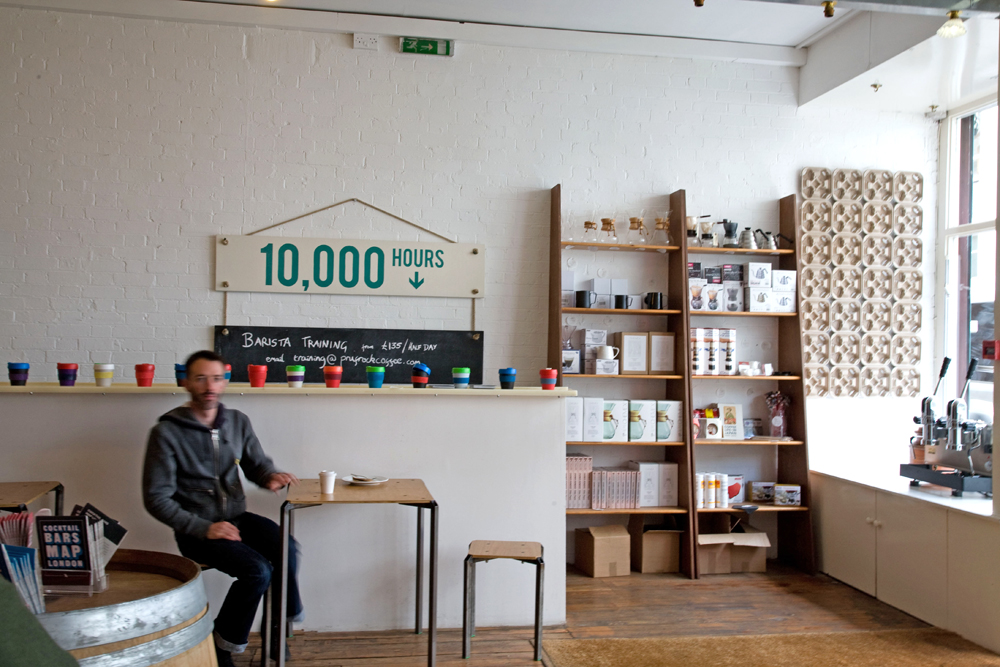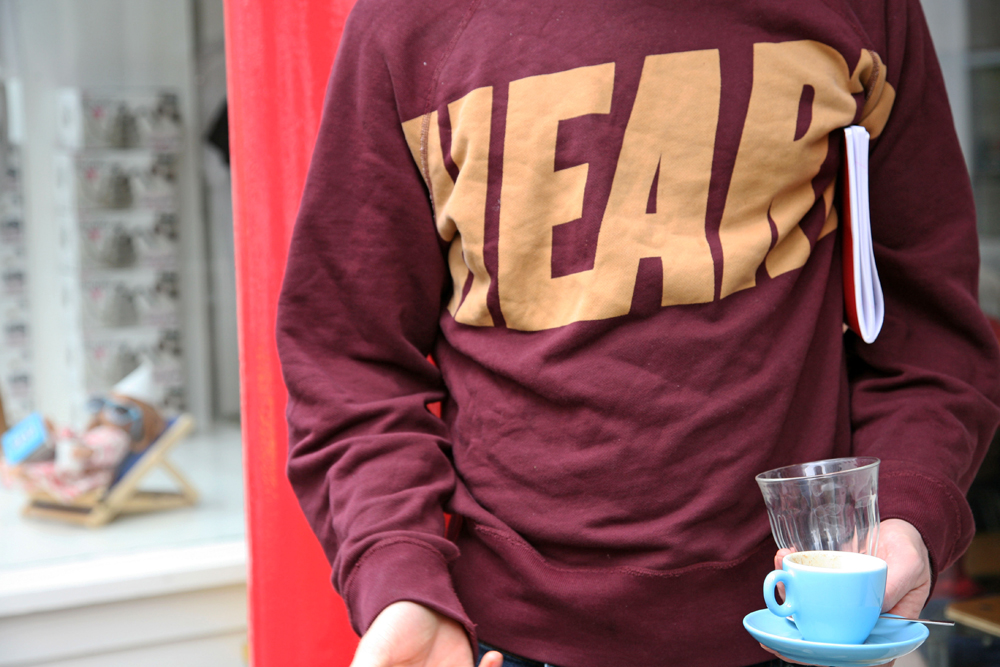Slow food spirit: Daniel Wilson
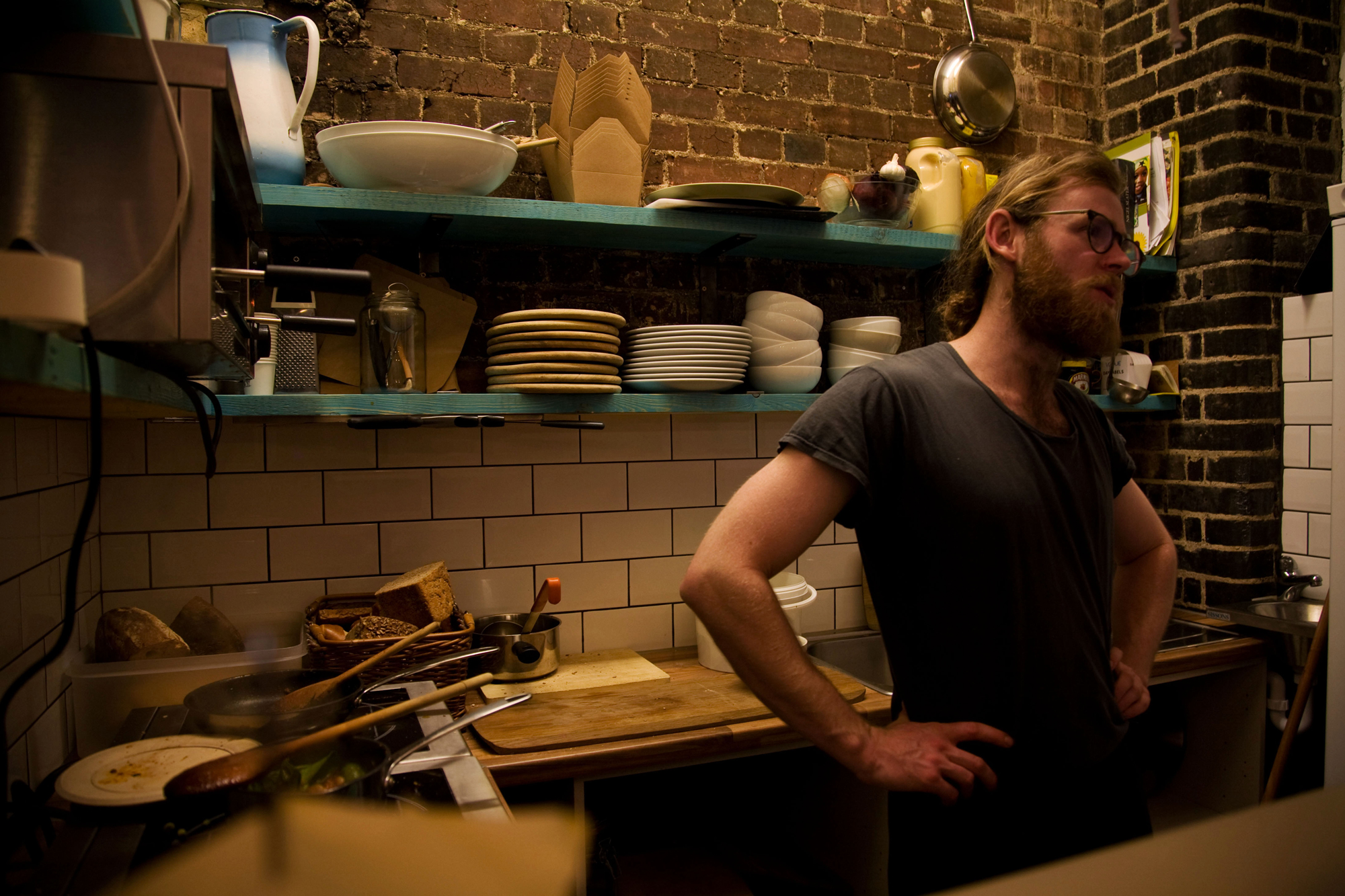
The pilgrimage to London for young Australians has a long pedigree. My own parents arrived in the 1970s, single, hungry for handmade shoes on Jermyn Street, picnics at Ascot and rambles in Richmond Park. They left almost a decade later, married, with two children, and the complete collection of volcano orange Le Creuset cookware. Now on my own rite of passage (with less luxurious taste than my parents), I’ve learnt that among the many stereotypes and clichés of Australians in London – chiefly, high alcoholic fitness and living in Shepherd’s Bush – at least one is true: we do coffee better. A rash of artisan bean roasters has appeared across London, defying the scourge of generic cafes – Costa, Starbucks, Pret – and quenching London’s thirst for that most popular antipodean export, the flat white. One of the best is Prufrock Coffee, on Leather Lane in Farringdon.
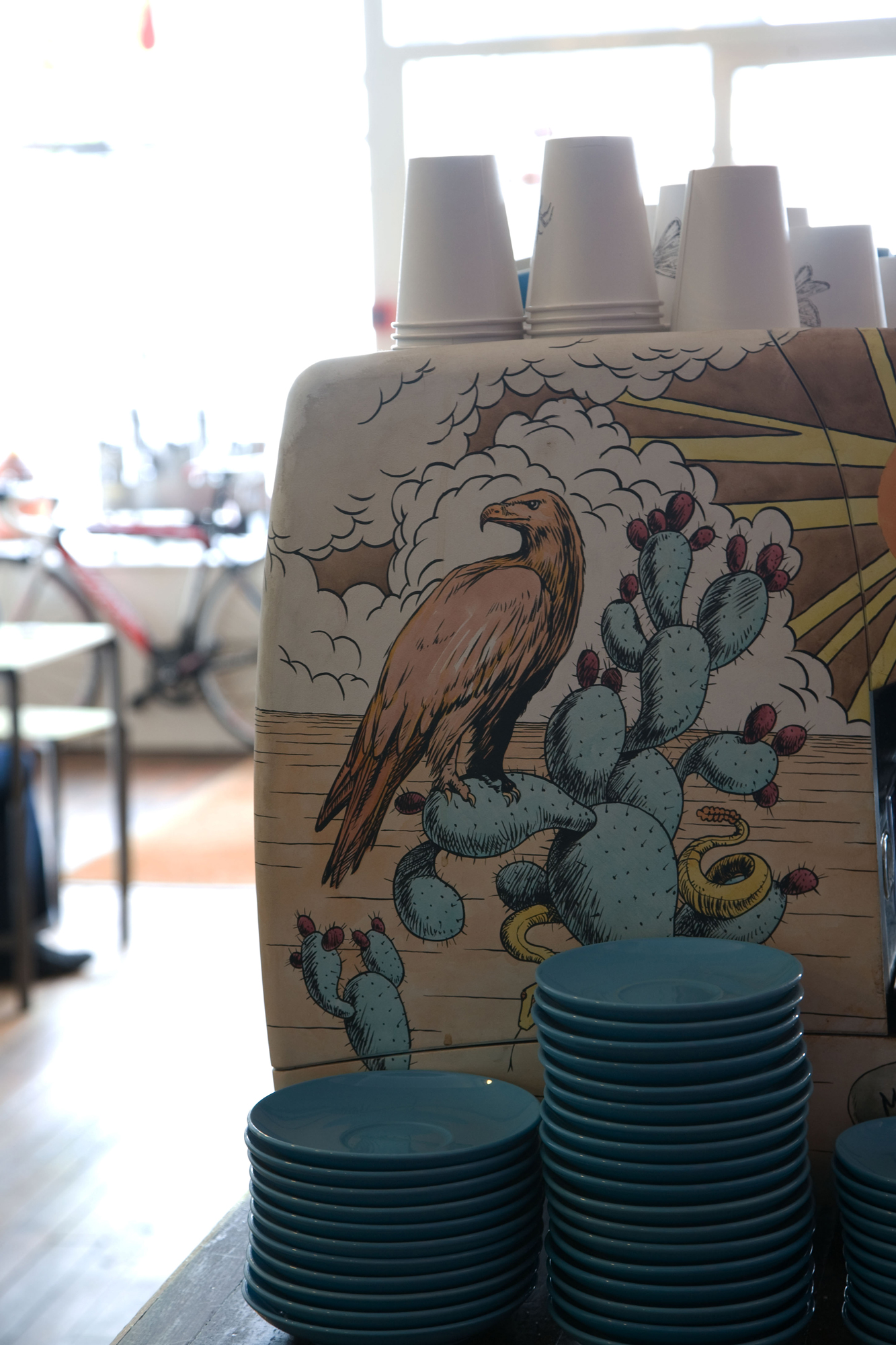
Walking down Leather Lane, which sits on the lip of London’s financial heart, is like gently opening Alice’s door. A secret ferment of workshops, studios, market stalls and small businesses brews in a quiet revival of the neighbourhood’s craft heritage, which threads through wonderfully named streets – Coldbath Square, Herbal Hill, Bowling Green Lane, Brewhouse Yard, Baker’s Row. Prufrock, tucked into an old warehouse, sources its beans from the acclaimed roaster Square Mile, and trains baristas in its coffee school. It’s here that I meet Daniel Wilson, another Australian in London, whose story is anything but cliché.
This afternoon in June, Dan’s wearing a thick vermillion jumper, tightly buttoned across the shoulder to the neck, and an olive green knitted beanie on his head. He looks like a ship’s captain. Rain streaking across the café windows adds to the nautical effect. Summer in London, I wryly observe. But Dan’s smile provides an oversupply of sunshine – which you can taste, too, in the short menu of beautiful dishes he cooks from Prufrock’s tiny but seaworthy kitchen, using locally sourced, seasonal ingredients.
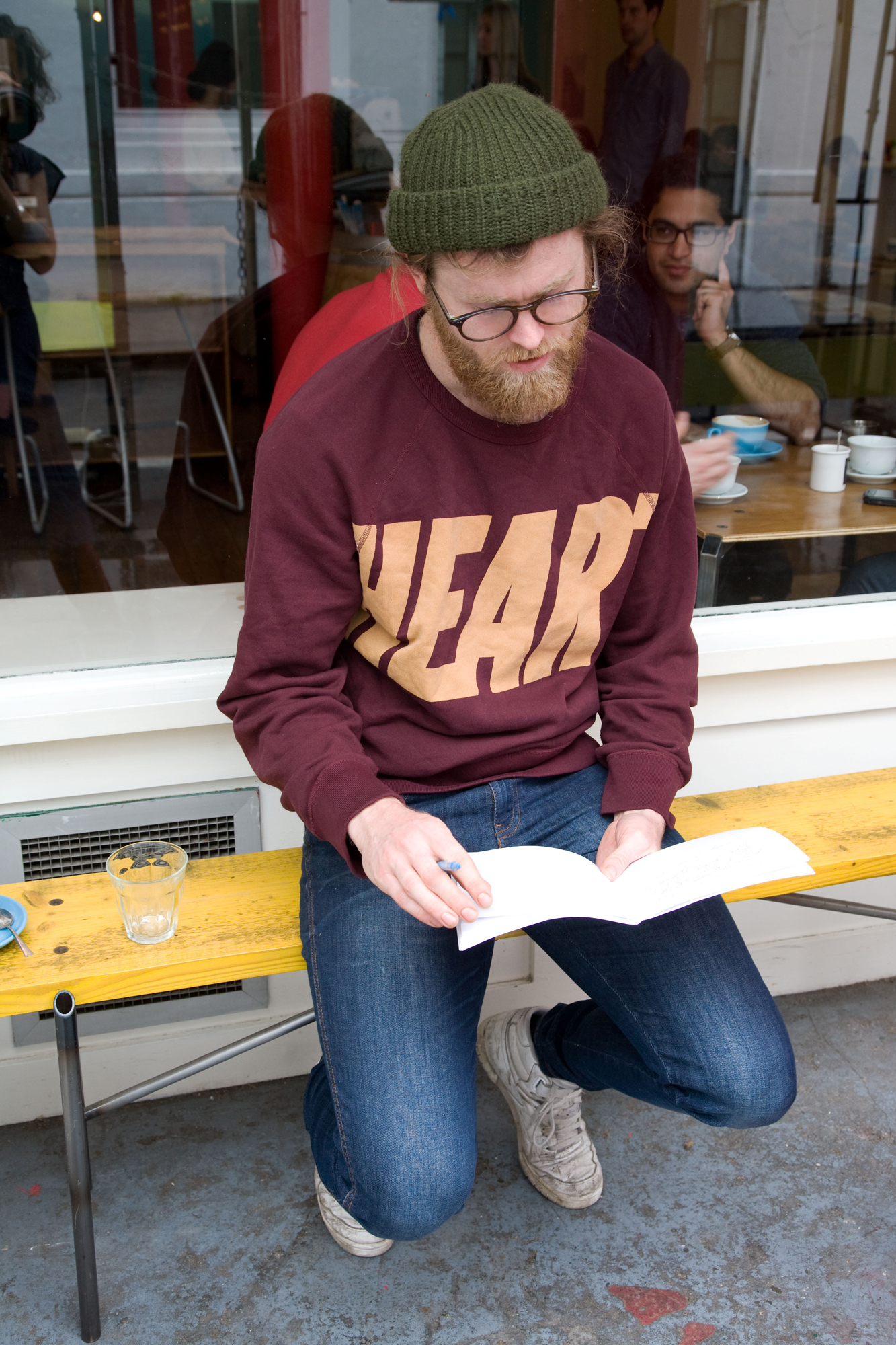
Dan grew up in Canberra where his father was head of the press gallery. Living on Parliament Hill, he naturally had big ideas and the urge to make an impression on the world. He moved to Brisbane to study economics and political history; paving, perhaps, a path into politics. His eloquence and intellect are disarmingly impressive – but also delightfully opposed to the bohemian glimpses in his wild hair and darting eyes. Like many of us, Dan graduated into a job-scarce market. He soon found himself working in a tiny café run by a Greek family. Yiayia’s rich cakes – think layer upon layer of sweet honeyed pastry – were baked from scratch through the night. Dan enlisted himself in the kitchen and learnt the fundamentals of cooking: working with flavours, basic ingredients and vital skills – eggs at the right temperature, the colour of butter, a fluffy sponge. From here, he sought out a friend to train him as a sourdough baker and he set to work, elbow deep in flour, in front of the ovens.
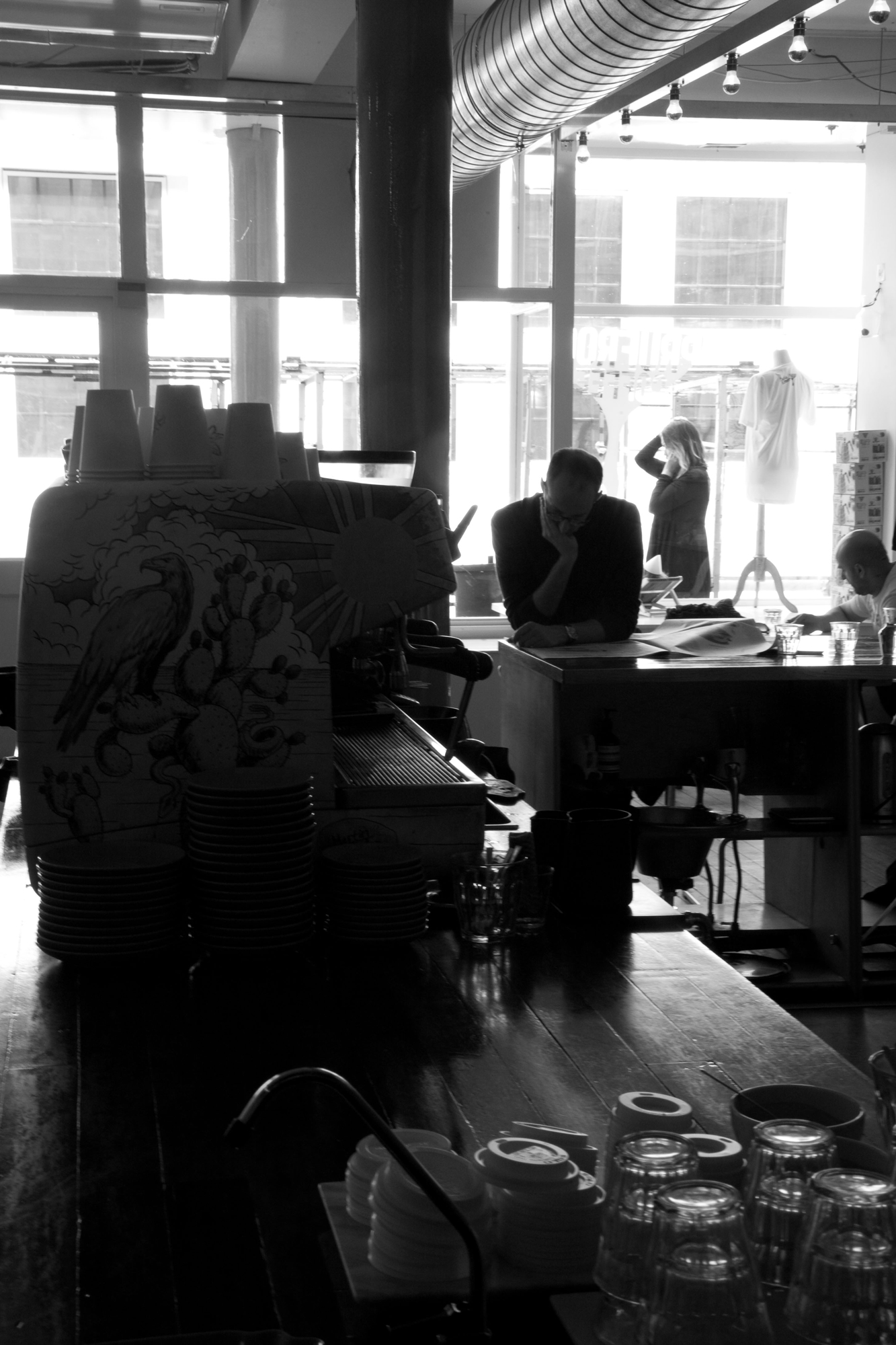
A loaf of bread, Dan waxes, has a lifetime of its own. It must be treated with care and respect. So much can go wrong. The soil can be poor, the grain crop can be poor, the wheat can be milled poorly, the flour can be transported poorly. The baker can add too much water, too much yeast, touch the dough too much, prove it for too long, bake it too hot, cut it too deep and too soon. By the time the loaf reaches the table it has travelled a long journey. Getting it right is a marvel.
On the subject of food Dan’s face lights up and our conversation becomes more voluble, and dare I say, colourful. He says his epiphany came one day when reading Australian chef Skye Gyngell’s My Favourite Ingredients. Gyngell, a slow food pioneer originally at London’s Petersham Nurseries, writes about how she chooses her kitchen staff not for their knife skills, but for their passion – cooks who are delighted as the changing seasons bring the first crop of white asparagus in spring, morels in autumn, strawberries in summer, quince and root vegetables in winter. This way of thinking about and experiencing food and cooking spoke to Dan. So he packed for abroad, and enrolled at the University of Gastronomic Sciences, in Bra, Piedmont, northern Italy.
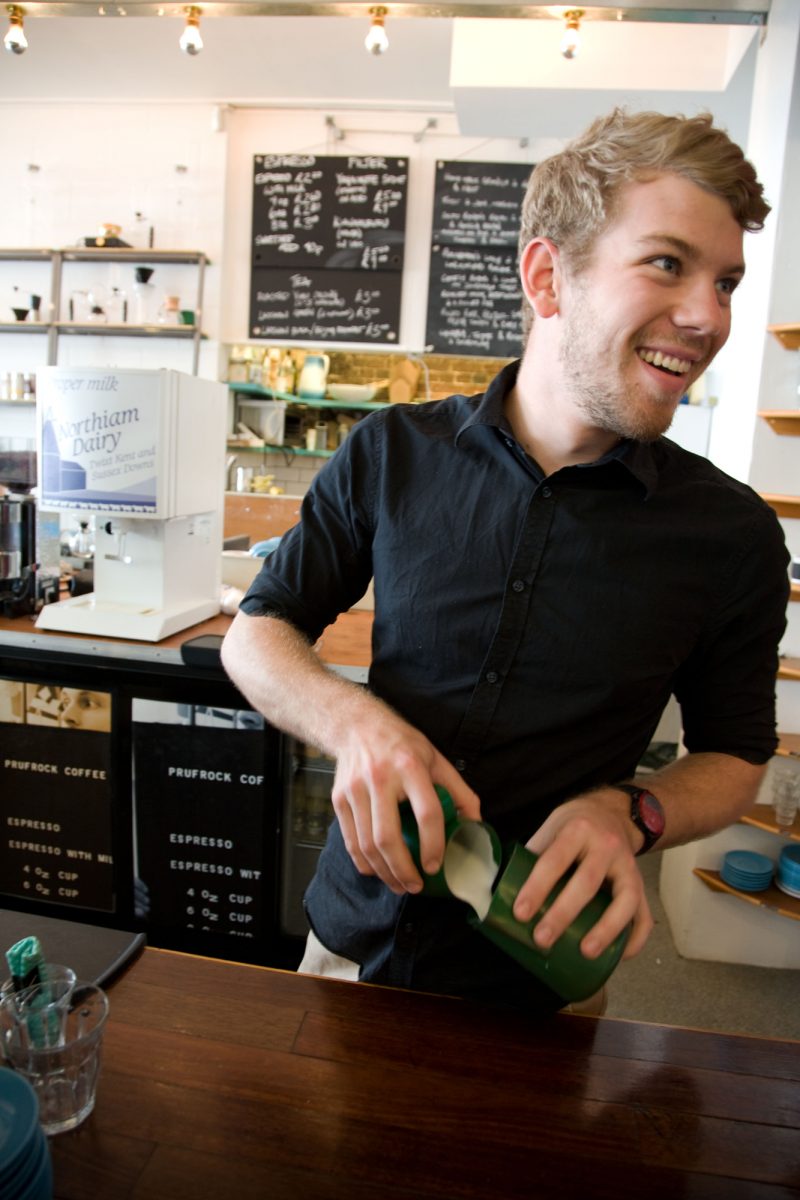
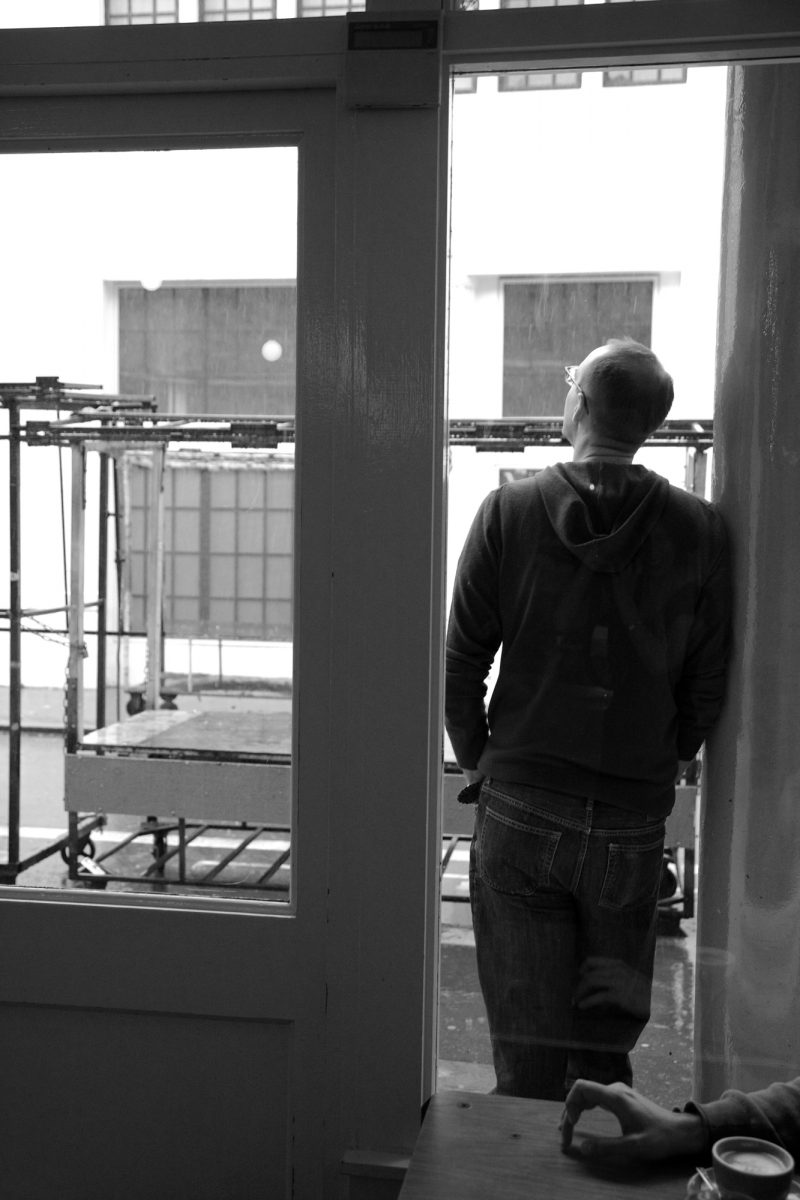
Here, among a clutch of talented cooks from around the world, the students mixed training with bacchic pleasure. To pay the bills Dan opened a popup restaurant in his own little apartment – a gorgeous space within a heritage building, with only a small kitchen and a long wooden table, cantilevered windows overlooking a courtyard. Dan cooked, friends waited, and the people of Bra flocked. Over gregarious company, food and wine, the restaurant created a space for the townspeople and the students to come together in a way that had never happened before.
For Dan, commensality is at the heart of slow food: the fellowship of the dining table, sensation, conversation and generosity, mingling to excite and delight. Slow food is about more than using the best ingredients; Dan describes it as composition, like writing a musical score or creating art. Slow food is about cooking with a consciousness for tradition and technique, stories and heritage, the land, the culture, the climate and the people involved in cultivating, preparing, presenting and eating a dish. Like curing fish under salt for days or tending to an ancient brick oven; a flock of goats cared for as children or mushrooms that have been gathered in the same forest by generations of the same family; or an annual festival celebrating the harvest. For the cook, slow food is as much about intuition as it is technical skill. A dish perfectly plated by the most proficient chef in the world can pale in comparison to food offered with the warmth and generosity of true hospitality, or what Dan calls “slow food spirit”.
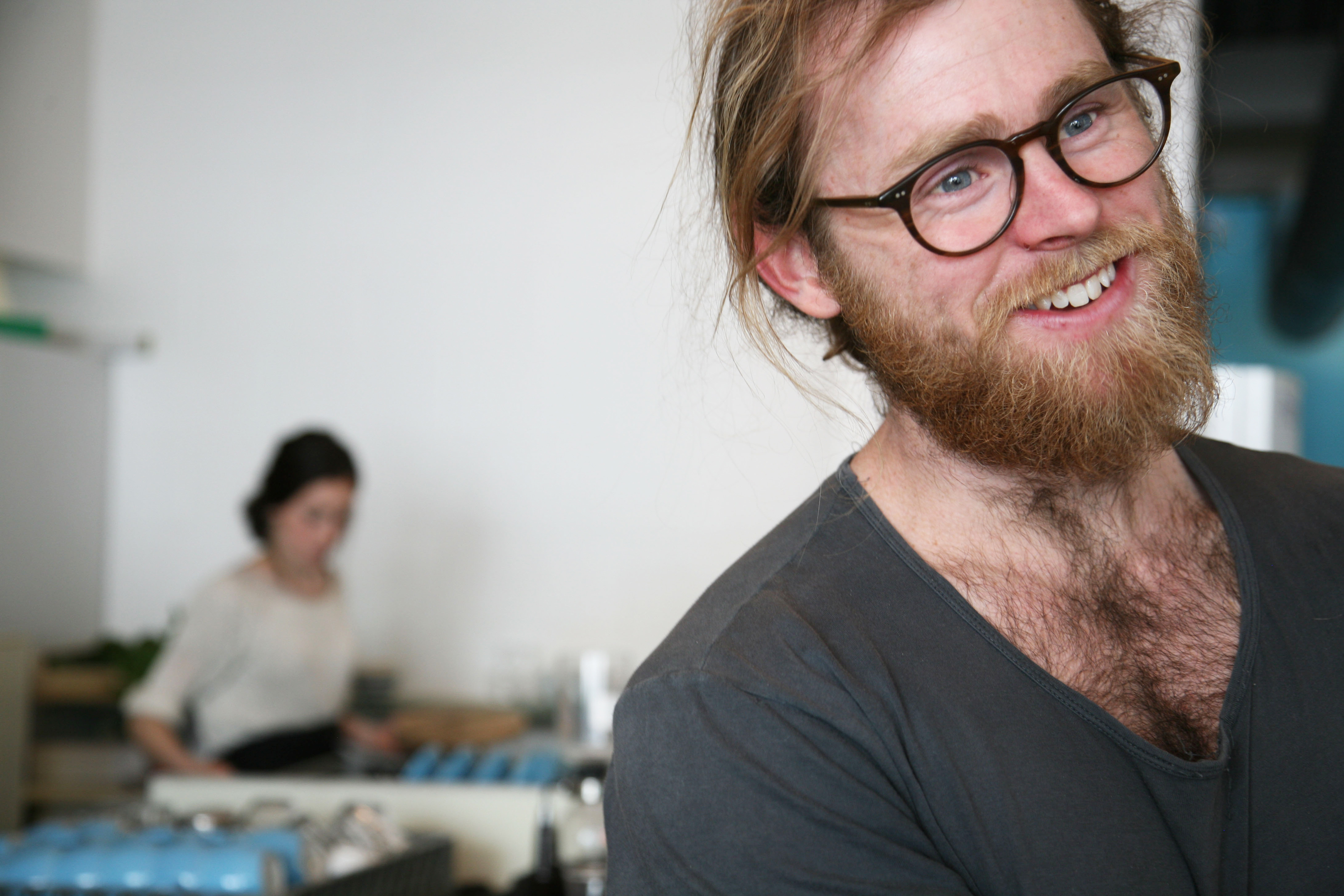
On moving to London, Dan worked for a time at Petersham, just after Australian chef and slow food hero Greg Malouf had left its kitchen. Dan departed from Petersham disillusioned by what he felt is a drift away from the roots of slow food. The dilemma is that slow food’s survival (or revival) depends on popularising the cause, but that in the push to mainstream, slow food has become profit-driven and, Dan believes, lost its essence.
Still a man of big ideas, Dan’s quest to make an impression on the world now involves politics of a different sort. He is committed to slow food. Through cooking he wants to share how food can awaken the senses and bring people together. Dan glows on remembering a friend tasting for the first time a sage leaf sizzled in olive oil and soaked in honey. He wants to write too. First, a history of herbs. And perhaps one day we can expect him to pen a philosophy of the slow food spirit.
Thanks to Henrietta for her fine words and pictures. To find out more about slow food, have a look at Slow Food Australia’s history here and for more about Prufrock Coffee, visit: prufrockcoffee.com
